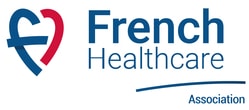QISTA, the Provence specialist in harmless international mosquito control, is exporting its anti-mosquito bollards to the Balearic Islands, a tourist archipelago, thanks to an unprecedented collaboration with the Spanish company Mosquizen. The hostel de la Pandilla is now equipped with 8 green anti-mosquito bollards.
The colonization of the tiger mosquito in Europe particularly affects the Balearic archipelago, due to the stagnation of water in the presence of intense human activity, and the Mediterranean climate, which is also warming up. All these islands therefore face major health challenges, linked to the vector-borne diseases that mosquitoes transmit.
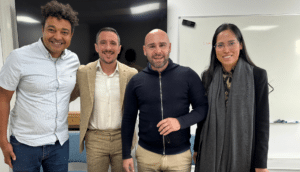
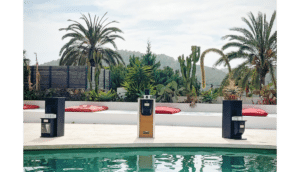
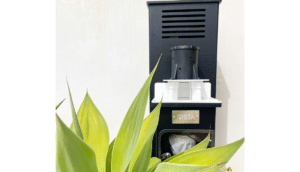
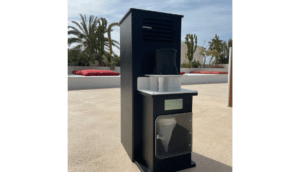
Member of French Healthcare Association QISTA announced a new partnership with the company Mosquizen, to stem the spread of tropical diseases carried by mosquitoes on the Balearic Islands. The start-up was already present in Spain, and is continuing to expand in the region to implement non-noise mosquito control.
Mr. Pierre Bellagambi, CEO and founder of QISTA, answered a number of questions about his innovative technology and the partnership. The aim of the interview was to gain a better understanding of the challenges of “clean mosquito control” in terms of epidemic prevention, as well as the company’s international ambitions.
Interview with Pierre Bellagambi, CEO of QISTA
QISTA has become a pioneer in the fight against vector-borne diseases thanks to its “mosquito bollards”: how do you explain this success?
Mr. Bellagambi: Mosquito traps of all kinds have always existed, but we were indeed the first to file patents for this type of innovation. Our bollards simulate prey, using advanced biomimicry techniques to attract female mosquitoes to the traps, without the need for insecticides.
Some areas, particularly those with high tourist activity, bring together populations from all over the world, including countries where dangerous mosquito-borne diseases proliferate. This increases the risk of an epidemic cycle, as mosquitoes will claim local victims, who may contract tropical diseases without even having travelled to high-risk countries. In this way, our terminal represents a genuine technological revolution, both in terms of its effectiveness and its ability to preserve local ecosystems and the health of populations.
We’re delighted to be able to spread the word about the materialization of the ecological transition, and even more delighted to be part of French Healthcare Association’s network. The enthusiasm generated by our solutions is shared by a wide range of international players, united in the fight against a health problem that affects the whole world.
It’s a question of containing the proliferation of vector-borne diseases, particularly malaria, but also of protecting people and their environments from the effects of exposure to insecticides. Our solution addresses these issues while creating added value and jobs. We therefore feel that we are fulfilling an essential mission, in line with the commitments made by French Healthcare Association.
Mosquitoes are vectors of epidemic-causing diseases such as dengue fever, chikungunya and the Zika virus… What results have you seen in terms of the incidence of these diseases where ecological bollards have been installed?
Mosquitoes are vectors of epidemic-causing diseases such as dengue fever, chikungunya and the Zika virus… What results have you seen in terms of the incidence of these diseases where ecological bollards have been installed?
M. Bellagambi: We’ve carried out a number of scientific surveys, from the Ivory Coast to the French Camargue, each time revealing a drop in the number of anopheles detected in areas equipped with bollards. In the Camargue, this monitoring has not only shown the significant impact of our bollard installation on the incidence of bites, but has also demonstrated the harmlessness of these machines for local fauna, and therefore our ability to protect the environment from insecticides and pesticides. The impact of the anti-bite bollards has also been demonstrated in Southern Senegal, in Kaolack, where we have installed around a hundred machines around health posts, hospitals, mosques and cathedrals… The aim is always to protect areas where humans and mosquitoes cohabit, with the associated major epidemic risks. For example, we are present on Reunion Island, where, as you point out, dengue fever is on the increase. This disease can be very incapacitating. We are achieving good results, even reducing the number of bites by 88% in some places.
We’d like to set up a new, more detailed monitoring project on the incidence of disease, in collaboration with an African health ministry. But these types of studies are extremely complex to implement: for a start, to assess the precise impact of a machine on a given area, we would ideally need to know all the movements of the people present, their location at the time of an injection… and above all, we would need to carry out thick drop tests several times a day, and therefore win the support of the population for the medicalization of their daily lives. For the time being, we’re working mainly on the basis of risk-species surveys generated by our machines, which are already confirming our good results all over the world.
What new countries are you expanding into, and what are your future international development objectives?
M. Bellagambi : Notre part de chiffre d’affaires réalisé à l’export évolue rapidement, avec une moyenne de 20% sur les trois dernières années. Nous estimons que cette part va largement augmenter dans les prochaines années, au gré des marchés remportés. Nous progressons actuellement sur plusieurs marchés occidentaux, pour protéger les citoyens dans les grandes villes développées, mais aussi sur d’autres régions naturellement plus touchées par les maladies transmises par les moustiques. En tout, nous sommes présents dans 36 pays. Plus concrètement, sur le très court-terme, nous nous développons en Angola, in the United Arab Emirates, Cameroon, Benin and Spain, notably with our new partnership on the Balearic Islands.
We don’t have the same kind of presence from one country to another. In Angola or the Balearic Islands, our distributors contribute to local economic development. But in some hard-hit countries, we have been able to deploy dozens of machines in professional settings, for example to protect gold mine workers. These installations meet very real needs in terms of health, ecology and economics. Mine workers, for example, are far from urban centers from their bases, and are therefore more exposed to disease, but also to the discomfort caused by the many mosquitoes. In these countries, where we are very active, the economic impact of our bollards is all the more perceptible: they help to offset the additional costs of training, staff turnover and compensation for absenteeism linked to illness, especially as a malaria crisis sometimes lasts more than ten days! The effects of this disease are such that amputations are sometimes necessary! It’s a threat not to be underestimated, especially in the run-up to the Olympic Games, which will bring together people from all over the world.
What is this partnership with Mosquizen in the Balearic Islands all about, and who are they? Why did you choose them to distribute your mosquito bollards?
M. Bellagambi: This local company is run by a duo of highly complementary people, whose vision appealed to us. One of them has a local workforce and extensive technical know-how, and regularly travels to private homes and local authorities to carry out electrotechnical operations. This technical expertise is useful for QISTA, as we sell machines first and foremost. The other co-founder has a deep understanding of the value of our products and the local issues they address. He has therefore mobilized numerous resources to communicate the benefits of our kiosks to a wide network. Over and above their technical skills, QISTA and Mosquizen share the same values, in both environmental and human terms. Common ambitions and the same goal: a perfect partnership!
Read QISTA’s press release here
- Cayenne: MEDIPREMA trains biomedical technicians to ensure continuity of neonatal care on site
- GITEX 2024 further strengthens Qista’s international presence
- The French export team in China and Latin America: two conferences to showcase the relevance of the ‘French Healthcare’ approach in markets with different challenges
- French Healthcare Association, the AFD and Foch Hospital meet the Egyptian Health Authority and the Egyptian Ministry of Health
- The platform My French Mentor is now online: find out how mentoring can help you accelerate your international business
